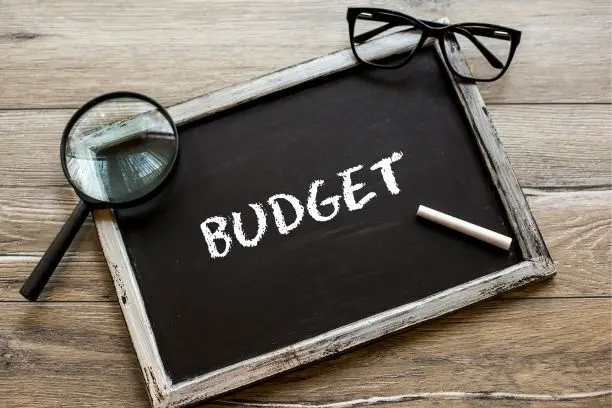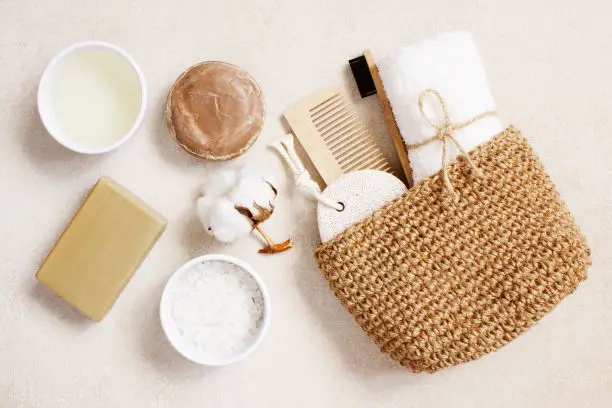In today’s world, where the cost of living is increasing and economic uncertainties abound, many people are looking for ways to save money and live a more sustainable life, and one approach that has gained popularity over the years is frugal living.
Contrary to popular belief, frugal living is not about being stingy or cheap but about being resourceful, mindful, and purposeful with your finances. Frugal living means being intentional with your spending and finding ways to live comfortably while spending less.
And not only can frugal living help you achieve your financial goals such as building your savings and paying off debt, but it can also contribute to living a more sustainable life by reducing waste and conserving resources.
In 2023, frugal living will be more relevant than ever before, as the pandemic continues to impact the global economy and people face rising costs of living, and in this post, I’ll provide you with 101 frugal living tips that you can use to save money in different areas of your life, from home and travel to entertainment and personal care.
So, whether you’re looking to cut back on expenses, pay off debt, or just be more mindful of your spending, these tips will help you adopt a frugal lifestyle. Let’s dive into the ultimate frugal living tips list for 2023.
Frugal Living Tips to Save Money in the Kitchen:

1. Plan your meals in advance and make a grocery list before going to the store:
To avoid buying things you don’t need and resist the temptation to eat out, it’s helpful to plan meals and create a grocery list for the week ahead. This way, you’ll only get the items you need and won’t make impulse purchases.
2. Buy generic or store brand items instead of name brand:
Buying generic or store-brand items can save you a significant amount of money. Despite being less expensive than name-brand products, these products are often just as good in quality and taste.
3. Cook meals from scratch instead of buying pre-made meals or eating out:
Cooking meals from scratch can be a cost-effective option in the long term. Homemade meals are usually less expensive than pre-made meals or dining out. Additionally, you have greater control over the quality and amount of ingredients used.
4. Use leftovers to create new meals or freeze them for future use:
To minimize food waste and cut down on grocery expenses, consider repurposing leftovers or storing them for later use. Leftover veggies and meat can be transformed into stir-fry or casserole dishes, while grains can easily be used to craft salads or soups.
5. Buy in bulk when possible:
Buying in bulk can be cost-effective if you use the items frequently and have storage space available. You can often save money per unit by purchasing larger quantities of items like rice, pasta, and canned goods.
6. Use coupons and discount codes to save money on groceries:
To save money on groceries, particularly for non-perishable items, consider using coupons and discount codes. You can find coupons in newspapers, online, and in-store advertisements.
7. Grow your own herbs, fruits and vegetables if you have the space and inclination:
You can save money on produce by growing your own herbs, fruits, and vegetables. Plus, you’ll have access to fresh and organic produce that may not always be available in stores.
8. Invest in a good set of reusable containers to store and freeze leftovers:
Using high-quality reusable containers is a smart way to store leftovers. It helps prevent spoilage and extends their shelf life, allowing you to get the most out of your groceries without wasting food.
9. Make your own coffee at home instead of buying it at a coffee shop:
Brewing coffee at home using a French press or coffee maker and buying your own beans or grounds is a cost-effective alternative to buying coffee everyday at a coffee shop.
10. Use a reusable water bottle instead of buying bottled water:
Replacing single-use plastic bottles with a reusable water bottle can save you money in the long run and contribute to minimizing plastic waste, which has a positive impact on the environment.
Frugal Living Tips to Save Money Around the House:

11. Use natural products, such as baking soda and vinegar, for cleaning:
Cleaning with natural products like baking soda and vinegar can save you money since they are affordable, and can be used for multiple cleaning purposes unlike expensive commercial cleaning products.
12. Turn off lights and unplug electronics when not in use to save on your electric bill:
To save money on your electric bill, it’s advisable to turn off lights and unplug electronics when not in use. Various electronic devices consume energy even when idle, which can cause wastage of energy and increase your electric bill.
13. Use LED light bulbs, which last longer and use less energy:
Switching to LED light bulbs from traditional incandescent bulbs is a great way to reduce energy costs. LEDs consume less energy and have a longer lifespan than incandescent bulbs, making them a more economical option in the long term.
14. Install a programmable thermostat to save on heating and cooling costs:
A programmable thermostat can assist in reducing your heating and cooling expenses. By programming the thermostat to fluctuate the temperature when you’re not home, you can avoid heating or cooling an unoccupied house and save money.
15. Take shorter showers and use a low-flow showerhead to save on water:
Taking shorter showers and using a low-flow showerhead can help you save money on your water bill. You’ll use less water and reduce your water usage, which can help you save on your water bill over time.
16. Use a clothesline or drying rack instead of a dryer to save on energy costs:
To reduce your energy costs, consider using a clothesline or drying rack instead of a dryer. This method of drying does not rely on electricity, making it a more economical option for drying your garments.
17. Repair clothes and shoes instead of buying new ones:
Instead of buying new clothes and shoes all the time, consider repairing the old ones. Minor damages can be fixed to extend their lifespan and save you money on clothing costs over time. Don’t throw away items that can still be repaired.
18. Shop for clothes at thrift stores or consignment shops:
If you want to save money on clothing, try shopping at thrift stores and consignment shops. These stores offer gently used clothing of high quality at a fraction of the cost of new clothes. This way, you can enjoy great style while keeping your budget intact.
19. Use cloth napkins and towels instead of paper products:
Using cloth napkins and towels instead of paper products is a cost-saving option for managing household expenses. With cloth napkins and towels, you can avoid frequent purchases of paper products, which can ultimately save you money in the long run.
20. Use a reusable shopping bag instead of single-use plastic bags:
If you bring your own reusable shopping bag instead of relying on single-use plastic bags, you may be able to lower your grocery bill. Many stores now charge for plastic bags, so carrying a reusable bag could help you steer clear of these fees and ultimately keep more money in your pocket.
21. Use rechargeable batteries instead of disposable ones:
Using rechargeable batteries instead of disposable ones can help you save money on battery costs. While rechargeable batteries may have a higher upfront cost, they can be recharged and used multiple times, so you won’t have to keep buying new batteries.
Frugal Living Tips to Save Money in Personal Finance:

22. Create a budget and stick to it:
Creating a budget and sticking to it can help you save money and reach your financial goals. By monitoring your income and expenditures, you can pinpoint areas where you can reduce your expenses and increase your savings or debt repayment.
23. Avoid unnecessary subscriptions and memberships:
To save money on your monthly expenses, consider cancelling any subscriptions or memberships that you do not use or need. This will free up money that can be put towards other financial goals.
24. Pay off high-interest debt first:
To save money on interest payments in the long run, it’s wise to first pay off high-interest debts like credit card debts that accumulate interest rapidly. This strategy can help you pay off your debts faster and reduce the total amount of interest you’ll have to pay.
25. Use cash or a debit card instead of a credit card:
To prevent accruing debt and interest charges, it is advisable to use cash or a debit card rather than a credit card. Additionally, paying with cash or a debit card can assist in adhering to your budget and evading excessive spending.
26. Shop around for the best deals on insurance and banking services:
Comparing prices and services offered by various insurance and banking service providers can help you cut down on your monthly expenses. Each provider has its own fees and rates, so it’s crucial to evaluate your choices and choose the one that offers the most suitable deal for your requirements and budget.
27. Buy a used car instead of a new one:
Opting for a pre-owned vehicle instead of a brand-new one can result in cost savings on the initial purchase price as well as lower monthly payments. Used cars typically come at lower prices and have slower depreciation rates than new cars, which makes them a more economical choice for a lot of individuals.
28. Negotiate prices for big-ticket items:
If you want to save money on major purchases, try negotiating prices for big-ticket items like appliances or furniture. Retailers may be willing to offer discounts or negotiate prices, especially if you’re a loyal customer or buying in bulk.
29. Save for emergencies and unexpected expenses:
Saving for emergencies and unexpected expenses can help you avoid going into debt or dipping into your savings. By setting aside money each month for emergencies, you can build a financial cushion that can help you weather unexpected financial storms.
30. Cook at home instead of eating out:
Preparing meals in your own kitchen can decrease your expenses on food compared to dining out. Homemade Meals are usually cheaper than those from a restaurant, and additionally, you can manage the size of your servings and the ingredients you use. This approach can, therefore, be cost-effective while helping you maintain a healthy diet.
31. Avoid impulse purchases and practice delayed gratification:
To save money, it’s helpful to avoid impulse purchases and practice delayed gratification. Take a moment to reflect on whether you truly need or want an item before making a purchase, and consider waiting a few days or weeks before buying it. Doing so can prevent you from making impulsive decisions and save you money by reducing unnecessary spending.
Frugal Living Tips to Save Money on Entertainment and Leisure:

32. Use the library instead of buying books and movies:
If you use the library instead of purchasing books and movies, you can cut down on entertainment and education expenses. Because libraries provide a diverse selection of books, movies, and other materials for borrowing at no cost, you can avoid spending money on buying.
33. Take advantage of free community events and activities:
You can have fun and discover your community without spending money by participating in free community events and activities. Various communities organize free concerts, festivals, and other events that you can enjoy with your loved ones.
34. Have a potluck instead of going out to eat with friends:
Opting for a potluck gathering with friends instead of dining out can be an excellent way to save money on restaurant expenses while also strengthening the sense of community and interpersonal relationships. Each participant can bring a dish or beverage to share, leading to an enjoyable and cost-effective means of socializing with friends.
35. Go for a hike or bike ride instead of going to a gym:
Instead of going to a gym and spending money on memberships, consider going for a hike or bike ride. This way, you can enjoy the outdoors and stay active. There are many parks and trails that offer free access and provide a fun and healthy experience.
36. Host a game night or movie night at home:
Organizing a game or movie night at home is a great way to save money on entertainment while enjoying quality time with loved ones. Simply invite guests over and ask them to bring a game or movie to share. This low-cost, high-fun gathering is the perfect way to socialize with friends and family.
37. Take advantage of free trials for streaming services:
To save money on entertainment costs and try out various options before committing to a paid subscription, take advantage of free trials for streaming services.
38. Use online resources for free entertainment, such as podcasts and YouTube videos:
You can explore new content without spending money by using online resources such as podcasts and YouTube videos. Many podcasts and YouTube channels offer free content, providing you with hours of entertainment.
39. Use discount codes and coupons for entertainment, such as amusement parks and movies:
You can save money on admission prices for amusement parks and movies by using discount codes and coupons. This way, you can still enjoy these activities without spending too much money.
40. Use the outdoors as your playground:
You can enjoy nature and get fresh air for free by using the outdoors as your playground. This includes going camping, having picnics, and taking walks. Additionally, these activities can help you exercise and relax.
41. Find creative hobbies that don’t require expensive materials or equipment:
You can discover new interests without breaking the bank by trying out creative hobbies that don’t require pricey materials or equipment. Drawing, writing, and singing are examples of hobbies that offer a great deal of amusement and self-expression without the need for expensive supplies or equipment.
Frugal Living Tips to Save Money on Travel:

42. Travel off-season to save money on airfare and lodging:
To cut down on travel expenses, consider traveling during the off-season. Airfare and lodging prices are often cheaper and it can make it easier to visit your desired location without overspending.
43. Use travel rewards and points to save money on flights and hotels:
You can save money on flights and hotels by using travel rewards and points. Various credit cards provide rewards and points programs that let you accumulate points, which can be utilized to pay for travel expenditures.
44. Choose cheaper accommodations, such as hostels or camping:
If you are looking to save money on lodging costs while traveling, you may want to consider staying in cheaper accommodations like hostels or camping sites. Despite being inexpensive, these options are comfortable and safe, making them a great choice for budget-conscious travelers.
45. Use public transportation instead of renting a car:
Opting for public transportation instead of renting a car can be a cost-effective and environmentally-friendly way to travel and explore your destination.
46. Plan your itinerary in advance to avoid overspending:
Having a clear plan and budget in mind when planning your itinerary can prevent overspending on activities and attractions. Additionally, it can save you time and money by avoiding activities that aren’t worth the cost.
47. Look for deals on attractions and activities before you travel:
To save money on entertainment costs, it is helpful to search for deals on attractions and activities before your travel. You can often find discounted tickets or packages that will allow you to save money on admission fees.
48. Use travel apps to find discounts and deals:
Using travel apps to find discounts and deals can help you save money on travel expenses like lodging and transportation. These apps can also provide valuable information about your destination and help you plan your trip more efficiently.
49. Bring snacks and drinks with you to avoid overspending on food and beverages:
Bringing snacks and drinks with you can help you avoid overspending on food and beverages during your travels. This can help you save money while also ensuring that you have healthy and delicious snacks on hand while you explore your destination.
50. Shop at local markets and grocery stores for affordable meals:
One way you can cut down on food expenses during your travels is by purchasing your meals from nearby markets and grocery stores. This will not only help you save money, but it will also provide you with the opportunity to try out the local cuisine and get a sense of the culture.
51. Consider volunteering or work-exchange programs to offset the cost of travel:
You can reduce your travel expenses by exploring volunteering or work-exchange programs that offer lodging or other benefits in exchange for work. This option not only makes travel more affordable but also helps you gain experience and skills.
Frugal Living Tips to Save Money on Personal Care:

52. Make your own beauty products with simple ingredients:
Making your own beauty products with simple ingredients, such as coconut oil and essential oils, can save money because it allows you to avoid expensive beauty products and tailor your products to your individual needs.
53. Use a safety razor instead of disposable razors:
If you switch to a safety razor instead of disposable razors, you can save money as safety razors are built to last for years while disposable ones are only intended for a few uses before they are thrown away.
54. Cut your own hair or learn basic haircuts to save on salon expenses:
If you have a simple haircut that doesn’t need much upkeep, you can save money on salon costs by learning to do basic haircuts and cutting your own hair.
55. Use reusable menstrual products:
Reusable menstrual products, such as cloth pads or menstrual cups, can save money in the long run because they are designed to last for several months while disposable products must be replaced regularly.
56. Take care of your clothes and shoes to make them last longer:
You can make your clothes and shoes last longer by taking good care of them, which can save you money that would otherwise be spent on repairing or replacing them.
57. Use a DIY toothpaste and mouthwash instead of buying them:
You can save money by making your own toothpaste and mouthwash with inexpensive ingredients that are easily available at most grocery stores.
58. Opt for simple and affordable skincare routines with minimal products:
Choosing a basic and budget-friendly skincare routine with fewer products can help you save money by avoiding costly and unnecessary items.
59. Use a homemade face mask made of natural ingredients:
Making a face mask from natural ingredients at home can help save money as you can use ingredients you already have instead of purchasing pricy face masks from the store.
60. Use a basic soap bar instead of buying multiple body wash products:
Using a basic soap bar instead of buying multiple body wash products can save money because soap bars are generally cheaper and can be used for both your face and body.
Frugal Living Tips to Save Money on Home Improvement:

61. DIY home repairs instead of hiring professionals:
By doing home repairs yourself, you can save money that would otherwise be spent on labor costs. Moreover, DIY repairs can be completed at your own pace, giving you the opportunity to acquire new skills and experience a sense of achievement.
62. Upcycle and repurpose furniture instead of buying new ones:
One way to save money on furniture is by upcycling or repurposing old pieces instead of buying brand new ones. By using your creativity, you can transform old furniture into something fresh and unique.
63. Use thrifted and second-hand items for home décor and accessories:
Consider using thrifted and second-hand items for your home décor and accessories. By shopping at thrift stores and second-hand shops, you can discover plenty of affordable options. Plus, you may even find one-of-a-kind and fashionable items that suit your budget.
64. Use energy-efficient appliances to save on electricity bills:
To save on your electricity bills, try using appliances that are energy-efficient. By doing so, you’ll consume less electricity and pay less on your bills. Moreover, some energy-efficient appliances may even qualify for rebates or tax credits, making them a more cost-effective option.
65. Invest in weather-stripping and insulation to improve energy efficiency:
To save on heating and cooling costs, it is recommended to invest in weather-stripping and insulation. This can be done by sealing gaps and drafts in your home using appropriate materials. Properly insulating your home will make it more energy efficient.
66. Use natural light and ventilation instead of using artificial lighting and air conditioning:
To lower your electricity bill and improve your health, try relying more on natural light and ventilation instead of artificial lighting and air conditioning. It’s a great way to save energy and stay healthy.
67. Choose low-maintenance plants for indoor gardening and landscaping:
Low-maintenance plants require less water, fertilizer, and maintenance. This translates into lower gardening costs and less time spent on upkeep.
68. Use a rain barrel to collect rainwater for gardening and other household purposes:
Rainwater is free and can be used for gardening and other household purposes. By using a rain barrel, you can reduce your water bill and conserve water.
69. Use reusable air filters instead of disposable ones:
You can save money and reduce waste by using washable and reusable air filters instead of disposable ones.
70. Use non-toxic and eco-friendly cleaning products instead of harsh chemicals:
To promote a healthier environment, opt for cleaning products that are non-toxic and eco-friendly instead of using harsh chemicals. Not only are they more cost-effective, but they can also be easily made using basic ingredients from home.
Frugal Living Tips to Save Money on Family and Children:

71. Use cloth diapers instead of disposable ones:
Using cloth diapers is a more economical choice than disposable diapers in the long term since they can be reused multiple times without the need for constant purchase. Moreover, they are environmentally friendly, which is beneficial for the planet.
72. Make your own baby food instead of buying it:
Home-made baby food can be a cost-effective and nutritious alternative to store-bought baby food. Not only is it cost-effective but it gives you the opportunity to monitor the ingredients and ensure optimal nutrition for your baby.
73. Shop for baby and children’s clothes at consignment shops and thrift stores:
Babies and young children grow out of clothes quickly, so buying second-hand clothes can save you a lot of money. Consider checking out consignment shops and thrift stores for affordable prices on high-quality clothes.
74. Use reusable snack bags and lunch boxes instead of disposable ones:
Another way to save money in the long run and be environmentally friendly is by switching from disposable bags and containers to reusable snack bags and lunch boxes.
75. Encourage outdoor activities and imaginative play instead of buying toys:
Encouraging children to play outside and utilize their imagination can be just as enjoyable as providing them with expensive toys. This approach can help your child save money while enhancing their creative and problem-solving abilities.
76. Plan family vacations that are affordable and meaningful:
Going on a family vacation doesn’t have to be expensive. Planning a vacation that is affordable and meaningful can create memories that last a lifetime without breaking the bank.
77. Use free resources, such as public libraries and community centers, for children’s activities:
Many communities offer free resources for children such as libraries, community centers, and parks. Taking advantage of these resources can provide your children with enriching activities without spending a lot of money.
78. Teach your children about money management and saving from a young age:
Starting early with teaching your children about money management and saving can enable them to establish positive financial habits that will benefit them in the future.
79. Plan meals and snacks in advance to avoid overspending on fast food and convenience foods:
If you plan your meals and snacks ahead of time, you can prevent yourself from spending too much money on fast food and processed snacks. This will not only save you money, but also contribute to a healthier diet.
80. Choose educational and enriching activities instead of expensive ones:
There are many educational and enriching activities that don’t cost a lot of money. Choosing these activities over expensive ones can save you money while still providing your child with valuable experiences.
Frugal Living Tips to Save Money on Social Life and Relationships:

81. Host potlucks and game nights instead of expensive dinners and nights out:
Consider inviting friends over for a potluck dinner or game night as a cost-effective alternative to going out to expensive restaurants or bars. This way, you can have a great time socializing while still keeping your spending under control.
82. Choose inexpensive date ideas, such as picnics and walks in the park:
Plan a picnic in the park or take a walk in a scenic area instead of going to expensive concerts or movies. This way, you can enjoy quality time without breaking the bank.
83. Make gifts instead of buying them:
Consider making homemade gifts, such as baked goods, crafts, or personalized cards, instead of buying expensive presents. This can save you money and also show your loved ones that you care.
84. Use online resources, such as free e-books and audiobooks, for entertainment and personal growth:
You can access a wide range of book titles without spending money by utilizing free resources like your local library or online platforms. Avoid purchasing books and audiobooks by using these free options.
85. Find free or low-cost ways to volunteer and give back to your community:
Look for local organizations or events that need volunteers. You can give back to your community without spending any money.
86. Connect with friends and family online and via phone calls to save on travel and entertainment expenses:
Use video chat apps or make phone calls instead of traveling long distances to visit loved ones. This can save you money on travel expenses while still allowing you to stay in touch.
87. Share skills and resources with friends and neighbors to save on costs:
Consider sharing tools, equipment, or skills with friends and neighbors to avoid having to buy or rent expensive items.
88. Use free or low-cost services, such as community centers and public parks, for social activities:
You can search for community events and activities that are either free or have low costs, such as concerts, festivals, or workshops. Attending such events can be an excellent way to socialize and make new friends without spending a lot of money.
89. Choose experiences and memories over material possessions:
Instead of spending money on costly possessions, concentrate on making lasting memories with your loved ones. You could plan a journey to a nearby destination or go on a camping adventure in the great outdoors.
90. Use loyalty programs and referral bonuses to save on purchases and services:
You can save money on future purchases and services by using the loyalty programs and referral bonuses offered by your favorite stores and service providers.
Frugal Living Tips to Save Money at Work and Productivity:

91. Use a simple and effective time-management system to increase productivity:
If you use an easy and efficient time-management system, you can prioritize tasks, steer clear of distractions, and also enhance productivity. All of this would enable you to save time and money since you’ll be able to complete more work in less time.
92. Set goals and prioritize tasks to avoid wasting time and energy:
By setting goals and prioritizing tasks, you can concentrate on tasks that are crucial and avoid wasting time and energy on less important ones. This can save you time and energy that can be used for other productive activities or leisure time.
93. Use free or low-cost resources, such as online courses and webinars, for professional development:
You can advance your career and learn new skills without spending a lot of money on expensive courses or certifications by taking advantage of free or low-cost resources like online courses and webinars.
94. Use energy-efficient lighting and heating in your workspace to save on utility bills:
To save money on your utility bills, consider using energy-efficient lighting and heating in your workspace. This can lower your energy consumption and result in significant long-term savings.
95. Choose a minimalist and clutter-free workspace to increase focus and creativity:
To improve your focus on work and avoid distractions, it is beneficial to opt for a simple and uncluttered workspace. This minimalist approach can lead to higher productivity and ultimately result in saving time and money.
96. Take breaks and practice self-care to avoid burnout and stress:
In order to prevent burnout and reduce stress levels that can negatively affect your work and result in decreased productivity, it is important to take breaks and prioritize self-care. Neglecting these activities can result in a loss of time and money.
97. Use a standing desk or ergonomic chair to improve posture and health:
Using a standing desk or an ergonomic chair can enhance your posture and overall health. This can help prevent expensive health problems that may occur due to prolonged sitting or poor posture.
98. Use a simple and effective task-management system to stay organized and focused:
Using a simple and effective task-management system helps you stay organized and focused, which saves you time and energy that can be used for other productive activities or leisure time.
99. Create a home office to save on commute and office expenses:
By creating a home office, you can save money on expenses related to commuting or having a separate office space. This can include costs like rent and equipment. Additionally, you’ll have the benefit of working in a more comfortable and adaptable environment.
100. Use free or low-cost resources, such as productivity apps and software, to streamline work processes:
Using productivity apps and software that are free or low-cost can help you optimize your work processes and free up time and energy for other productive or leisure activities.
101. Use time-blocking to schedule and manage your tasks:
To increase productivity, try time-blocking. This means scheduling and managing tasks in a way that lets you focus on one thing at a time and avoid distractions.
FINAL THOUGHTS ON FRUGAL LIVING TIPS TO SAVE MONEY IN 2023
In conclusion, implementing frugal living habits in 2023 is a smart move for anyone looking to save money, reduce waste, and live a more sustainable life. With the 101 frugal living tips I’ve provided in this post, you can start taking actionable steps towards achieving your financial goals.
From simple changes like turning off lights and unplugging appliances when not in use to more significant changes like buying second-hand items or canceling unnecessary subscriptions, every little effort counts towards achieving financial stability and sustainability.
In addition to the financial benefits, frugal living can also improve your overall well-being by reducing stress and giving you a sense of control over your finances. It can also help you develop important life skills like cooking, DIY projects, and planning.
So, whether you’re just starting your frugal living journey or looking to improve your current habits, I hope this post has provided you with valuable insights and actionable tips to help you achieve your goals.
Remember, frugal living is not about sacrificing your quality of life but rather finding a balance between your financial goals and your lifestyle.
So go ahead, start implementing these frugal living tips today, and take control of your finances and your life in 2023 and beyond!🍀✨
Read More:
- 9 Frugal Tips to Live Below Your Means
- The One Habit You Need to Save Money
- 10 Things You Need to Stop Buying to Save Money Fast
- 10 Simple Money-Saving Tips for Beginners
- How to Make Money with Blogging: Top 5 Ways






